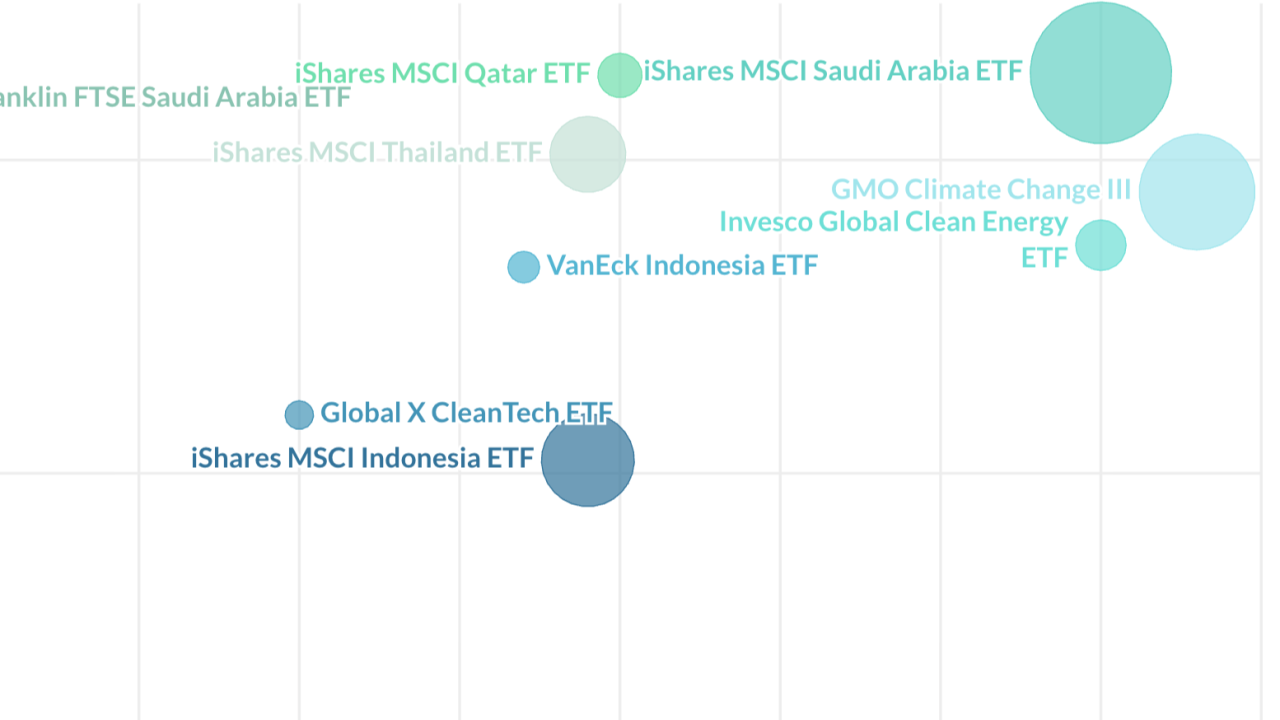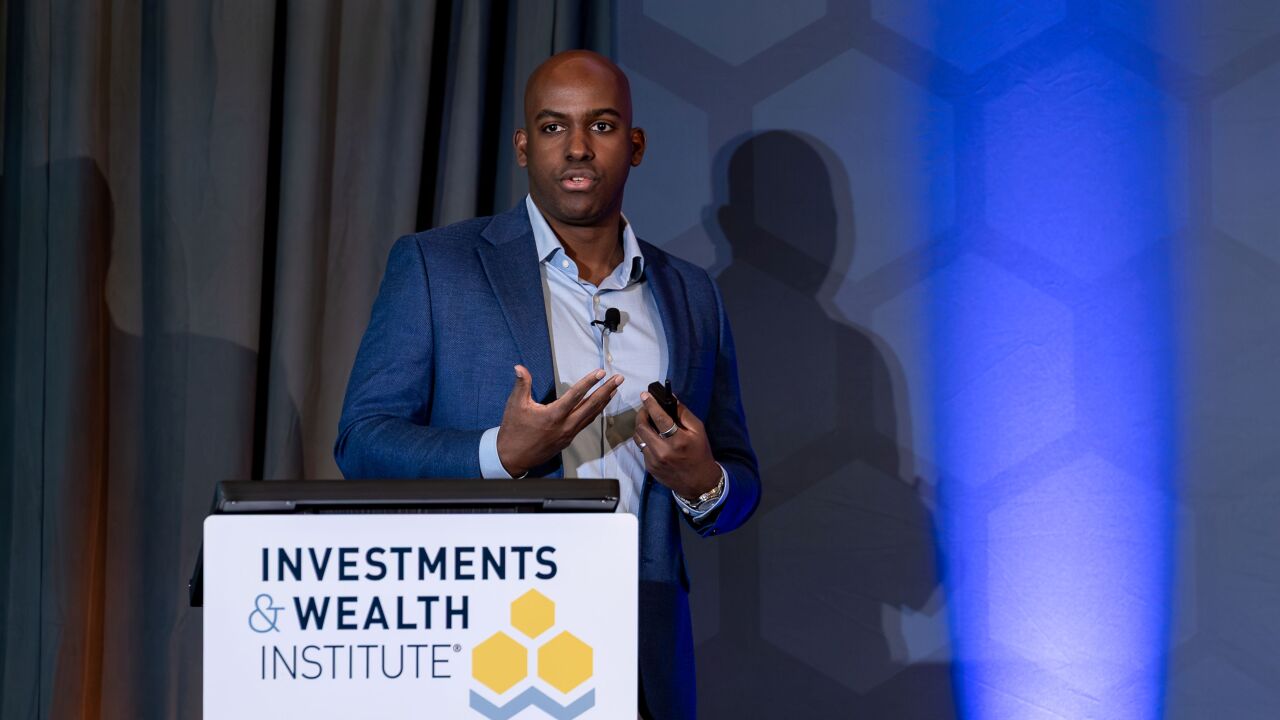Just when the mutual fund industry was ready for a breather from 20 months of intense regulatory scrutiny and costly new compliance measures, along comes Danny Black.
With his admission to the media last week that a number of key traders from Fidelity Investments enjoyed a lavish Miami bachelor party two years ago - one where his company, shortdwarf.com, provided part of the entertainment - the four-foot, two-inch Black may have set in motion a second round of sweeping investigations from the Securities and Exchange Commission and the NASD.
Not to mention a whole new batch of rulemaking from the top two federal regulatory bodies that takes a harder look at allowances for what's widely known on Wall Street as "soft-dollar marketing support," where brokerage houses will spend up to 10 basis points of the value of the block of trades on client entertainment.
As to what drove the brokers and their Fidelity clients to such excess, one former fund wholesaler, speaking off the record for MME, commented: "The trading basis has come down from 4 cents a share, to 2 cents, to 1 cent or less, [and] it has become a commodity business. Traders today will do a lot more to protect their business."
"Considering who is involved and the names that are involved, this isn't going to go away anytime soon," said Nancy Van Sant, a former SEC investigator and director at the Miami law firm of Sacher Zelman & Van Sant.
The story, according to news reports, goes like this. In March of 2003, brokers from three of Wall Street's premier houses - Jefferies Group, SG Cowen and Lazard Capital Markets - collaborated on throwing a bachelor party for one-time Fidelity trading all-star Thomas Bruderman, Jr. The brokers reportedly expensed to their firms a private jet, posh hotel rooms and a yacht soiree, all of which would be in violation of longstanding NASD gift rules.
Bruderman left the firm late last year during an in-house disciplinary sweep over gifts and gratuities, which has gone so far as to implicate Fidelity Chairman Ned Johnson and firm heir apparent Abigail Johnson for accepting tickets to high-profile sporting events (see MME 7/4/05). Also caught in the sweep was head trader Scott DeSano, who was recently reassigned within the company (see MME 7/18/05).
DeSano also attended the bachelor party, news reports said, but it's been suggested that he may have reimbursed the brokers for travel expenses out of his own pocket, which would sufficiently soothe SEC and NASD regulators. In an ironic twist, another reported party attendee was Bruderman's then-future father-in-law, former Tyco International Chairman and CEO L. Dennis Kozlowski, who was recently convicted of using company money to throw lavish parties of his own and sentenced to 25 years in jail.
Throw in Black's coy admission that "a good time was had by all," and suddenly the probe shifts from a rather innocuous investigation into Wall Street's old-boy network to one that may rival its market-timing and late-trading predecessor, which has already cost fund complexes $3.4 billion in fines and brought down scores of the industry's most talented professionals.
Issue a Memo
"It could go that far," Van Sant warned. "All they need to do is indict one person. As we've seen in the past, everyone wants to make a deal. Nobody wants to go to jail," she added. "If I were general counsel somewhere, I'd be sending out memos regarding this today."
The NASD, which has been cracking down on gifts linked to sales contests, wouldn't elaborate on whether it has spoken with officials at the three brokerage houses involved in the Bruderman bachelor party.
"We cannot comment on an investigation. We don't discuss that," said NASD spokesman Herb Perone.
The SEC isn't elaborating on the extent of its investigation at Fidelity, either. Reports are circulating in Boston, however, that the U.S. Attorney General Office has convened a grand jury to examine rumors that drugs might have been traded between Fidelity and the brokerage houses. A spokeswoman for the office, Samantha Martin, said she "cannot confirm or deny an investigation" is afoot.
What is clear, however, is that if the brokerage firms picked up the tab on the company dime, heads will roll. NASD rule 3060 prohibits gifts "of value in excess of $100 per individual." But in a 1999 guidance letter to T. Rowe Price Investment Services, elaboration on the rule did not limit what it characterized as "ordinary and usual business entertainment."
"Payment of travel expenses, for instance, by a third party would be in violation of the NASD rule, so there's likely to be some fallout from that," said Victor Siclari, a partner at the law firm Reed Smith in Pittsburgh. "And that letter is an exception people rely on for the occasional golf outing. This is much more excessive."
Go-Go Days'
The fund wholesaler agreed on that point, noting that in the "Go-Go days of the 80's and 90's, traders' demands for perks was way up from the norm. They'd ask for a case of golf balls instead of a sleeve, and then they'd find themselves showered with golf trips." This excess clearly extended to many trading floors, including those of the seemingly quieter, tamer mutual fund houses.
"Brokers' sales organizations began going after [directed brokerage] very aggressively, and now you are seeing the same type of trouble that has haunted the investment banks coming back to bite the wirehouses," the wholesaler continued.
"But this isn't just an issue of gift-giving," said Siclari, who counsels mutual funds, banks and other financial institutions. "It is a big scandal that is going to raise concern at the SEC and NASD that other outings might have occurred."
The SEC and NASD like low-hanging fruit, too, Siclari added. "They like easy cases that catch people's attention and say, Hey, you can go to jail for this, too.'"
That doesn't mean, however, that additional rulemaking is coming, he noted.
"There will always be people who find ways around the rule, so you have to make the consequences severe enough that they won't take the risk," he said.
Unfortunately, in the court of public opinion, which matters quite a bit in the retail world of mutual funds, it might be Fidelity that pays the largest price.
Brokers have long cultivated an image as cutthroat wheelers and dealers willing to go to any length to land business from big fund complexes, while Fidelity has long been perceived as a white-shoe organization.
But the "Wild West" trading culture extends as high as the second-tier investment banks and brokerages, the wholesaler noted. "Fidelity was known for being part of the overall culture, but discreetly. The bachelor party on the jet was plain stupid," the former fund wholesaler continued. When pressed as to whether it might have been personally enticing, he said he would have turned down the invitation down because such a party "is way too generous and not the thing you want to get involved in."
Tom Westle, a partner at Blank Rome, New York, who specializes in corporate and securities law, believes that "Fidelity escaped the market-timing and late-trading scandal because they have trillions of dollars [and] don't have to bend over backwards to hedge funds.
Fidelty's Favored Few
"They don't need to be culled with favors, either. At the same time, for a broker, it could make your year if you're one of Fidelity's favored firms."
Westle doesn't think the violations are egregious enough that anyone from Fidelity or the brokerage houses would end up in jail. For starters, he said if Bruderman and his Fidelity colleagues had been using the trio of brokerage houses for years and "consistently generated X-percent of their trades through them," it would be difficult to prove that the gifts were meant to curry favor.
Additional rulemaking from the SEC and NASD is unlikely, too, he added.
"It would probably come out of the industry itself, perhaps through the Investment Company Institute, before the SEC or NASD could do anything," he said.
Don't expect investors to run from Fidelity, either, said Adam Bold, founder and president of Overland, Kan.-based The Mutual Fund Store. Bold, who hosts a syndicated radio talk show about mutual fund investments, said Fidelity's reputation is too squeaky clean to suffer outflows from the investigation.
Besides, he added, the everyday investor simply doesn't grasp the magnitude of gift giving on Wall Street.
"We have had a sell on any fund implicated in the [trading] scandal, but we're not telling our clients to pull out of Fidelity funds," said Bold, whose firm has $1.2 billion under management. "They've always been a very shareholder-oriented firm. This has been a black eye, [so] I expect that they'll come out with a hard and fast decision on this quickly."
The fate of the traders and brokers involved in the case, meanwhile, will likely have to wait until we see if there are more willing storytellers out there like Danny Black.
(c) 2005 Money Management Executive and SourceMedia, Inc. All Rights Reserved.
http://www.mmexecutive.com http://www.sourcemedia.com





